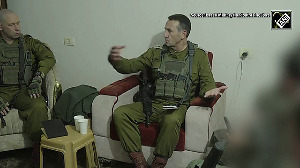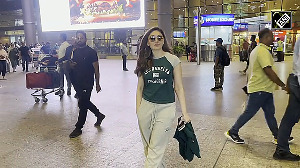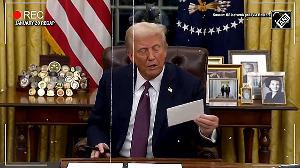Mobile radio trunking is a walkie-talkie service through which users can talk to each other in a closed group. In its analogue form, the phones are bulky and every member of the group can listen in on the conversation.
But in its digital format, the walkie-talkie set looks like a mobile phone, allows broadband access, and allows private conversations within the user group.
Most importantly, calls can be made to and received from other networks as long as there is an interconnect agreement with telecom operators, just as in mobile phone services. The new sets also have a range of over 50 km, which means they can be used anywhere in a city.
The service could also be cost effective. Handset prices are more or less in line with mobile phones and are available for less than Rs 10,000.
A Zee group spokesperson, while confirming the development, said the service, bundled with value-adds like broadband and SMS, could be available at Rs 1,000 a month. And calls made within the user group are free.
Some years ago, the Zee group bought Motorola's analogue public mobile radio trunking business. It now controls 70 per cent of the business with over 100,000 subscribers across the country in 18 cities.
In its application to the DoT, the Zee group has asked for 1 MHz of the 3 MHz spectrum reserved for digital radio trunking services available on a first-come, first-serve basis. However, the DoT feels some spectrum has to be left for other players. The DoT is still looking into the application.
Zee has pointed out that except for group company Procall, which offers these services, no one else has applied for spectrum in Bangalore.







 © 2025
© 2025